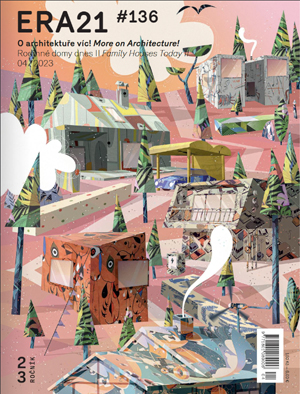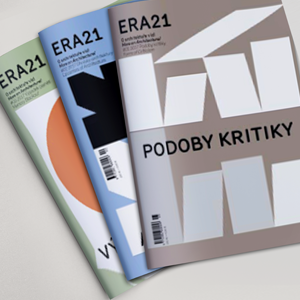V posledních týdnech proběhla téměř všemi českými médii kauza zateplení budovy základní školy v Kamenných Žehrovicích. Výsledek rekonstrukce vzedmul vlnu pobouření, výsměchu a nenávistných komentářů. Starostka obce byla překvapena, že se k tématu vyjadřují lidé odjinud a především profesí architekti. Pod nečekaným tlakem mluvila o mediální kampani. Média řešila historickou hodnotu objektu, smysl zateplování, výraznou barevnost...
» entire articleCities are gradually becoming larger and more complex technological systems that are interwoven with more and more dense and sophisticated systems of energy, transportation, and communication networks. It is no exaggeration to say that to what we see above the ground, the same amount is hidden underground – utility corridors, product pipelines, sewage collectors, distribution networks, fiber-optic cables – and often kept out of sight on the peripheries are the associated underground facilities of power stations, waterworks, sewage treatment plants, incineration plants, heating plants, technical centers, transmitters, or control centers.
» entire articleV krátkém experimentu nazvaném architektonické vzdělávání se musíme ptát: Jak dlouho ještě vydrží ateliérový model? Otázka se týká přímo podstaty naší činnosti. Při pomyšlení na ateliér má člověk tušení konce. Od pozdních šedesátých a raných sedmdesátých let, kdy byl tento výukový model vynalezen a kdy byl na vrcholu rozkvětu, do situace zasáhly mnohé vlivy. Přesto dnes stále tvrdohlavě a bezmyšlenkovitě pokračujeme v této „nové” tradici. O ateliéru uvažujeme jako o centru architektonického vzdělávání. Je však dále udržitelné? Kolik podmínek se v architektonickém vzdělávání změnilo od doby, kdy byl tento postoj formulován? Je možné dnes najít jiný přístup, který by lépe vyhovoval okolnostem, s nimiž se dnes musíme vyrovnávat?
» entire articleEleven years ago ERA21 (#01/2006) published a quotation from an essay I wrote entitled Five Critical Horizons for Architectural Educators in an Age of Distraction. The essay proposed the studio model itself was subject to various distractions that would either question the model or cause new models to emerge. I was convinced at that time and even more so today the level of distractions have increased and further lessened the efficacy of the modern or post-modern studio model. Historically the studio model depended on “masters” who somewhat cryptically shared their methods to willing acolytes.
» entire articleA house with a Renaissance-period core, standing at the foot of the castle hill in the former Jewish quarter in Mikulov, went through dozens of modifications and operations during its existence and yet it managed to maintain its medieval picturesque appearance. The last reconstruction was for a bed & breakfast accommodation. But, Štajnhaus wasn’t just a project, it was a process of gradual uncovering of layers, spaces and surprising associations, and of searching for a point in time you can go back to, and a point from which you need to take a new path. The house is preserved as an organic whole, where space and shapes blend just like the historic elements blend with the modern tailored details. Part of the house serves as private rooms for the owner. There are five rooms for rent, each one of them with a specific atmosphere. The wine cellar and the adjacent yard was also restored.
» entire article

ERA21 vydává ERA Média, s. r. o. |
|
|
Phone: +420 530 500 801 E-mail: redakce@era21.cz |
|
| WEBdesign Kangaroo group, a.s. |